Dr. Robert Bullard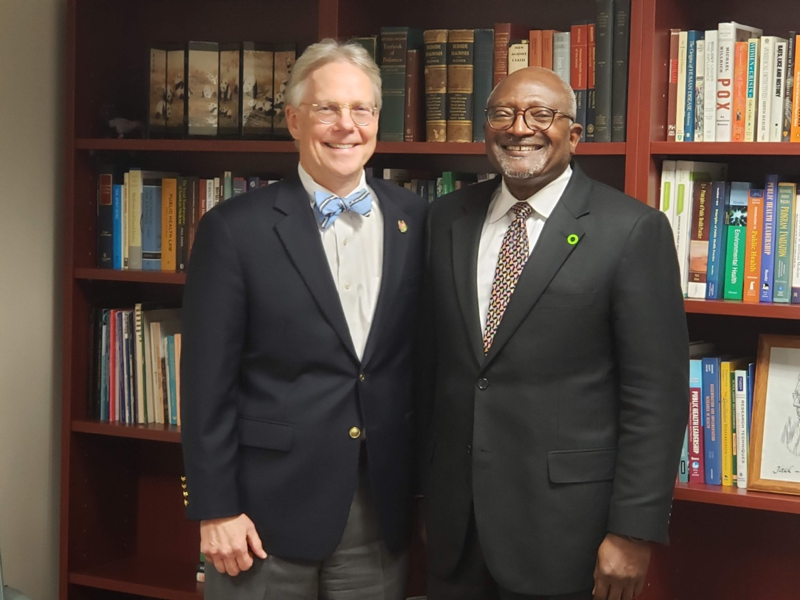 UAB School of Public Health Dean Dr. Paul Erwin (l) stands with Dr. Robert Bullard., Distinguished Professor of Urban Planning and Environmental Policy and former Dean of the Leland School of Public Affairs at Texas Southern University, founding Director of the Environmental Justice Resource Center at Clark Atlanta University, prolific author of 18 books, and climate policy expert, distilled 40 years of lessons learned in a powerful talk titled “Unequal Burden: Advancing Health Equity through Environmental, Economic, and Racial Justice” at the UAB School of Nursing last week.
UAB School of Public Health Dean Dr. Paul Erwin (l) stands with Dr. Robert Bullard., Distinguished Professor of Urban Planning and Environmental Policy and former Dean of the Leland School of Public Affairs at Texas Southern University, founding Director of the Environmental Justice Resource Center at Clark Atlanta University, prolific author of 18 books, and climate policy expert, distilled 40 years of lessons learned in a powerful talk titled “Unequal Burden: Advancing Health Equity through Environmental, Economic, and Racial Justice” at the UAB School of Nursing last week.
Bullard reviewed the biggest battles of his venerable career, set against the background of the U.S. environmental movement, from its beginnings in the 1970s to today. Citing evidence showing people of color are more likely to live in zip codes near toxic waste dumps, with poorer air and water quality, and that are more vulnerable to severe weather events compared to zip codes that are predominantly White, he connected the dots to both the historical causes of neighborhood disparities and their associated negative health outcomes.
Pollution Takes a Heavy Toll on the Health of People of Color
A 2017 Harvard University study found African Americans are nearly three times more likely to die from exposure to airborne pollutants than other Americans. According to the CDC, African Americans are almost three times more likely than whites to die from asthma related causes; African American children are 4 times more likely to be admitted to the hospital for asthma, as compared to non-Hispanic white children; African American children have an asthma death rate ten times that of non-Hispanic white children. Dismantling institutional racism would go a long way in closing environmental health disparities in the United States. It’s time for this immoral, unjust and illegal pollution dumping to end. –Dr. Robert Bullard
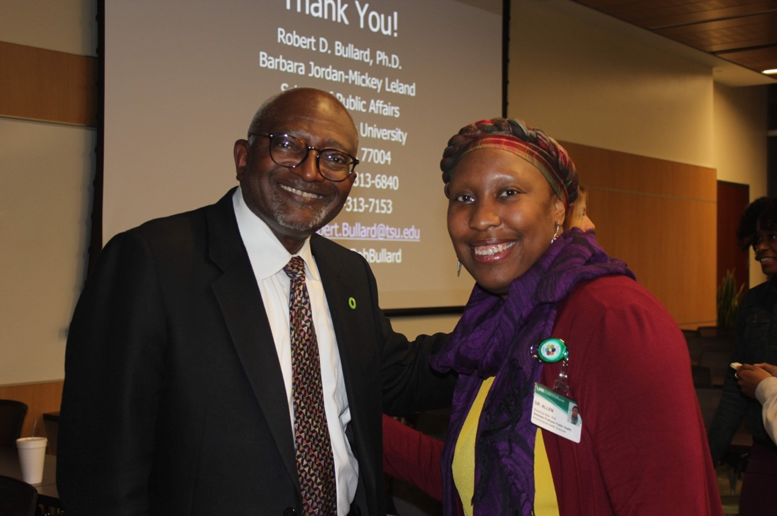 Drs. Robert Bullard and Shauntice Allen, CCTS Community Engagement Program Manager.Bullard also discussed the much later emergence of the environmental justice movement and the challenges it still faces, even among progressives. He called for intersectoral collaboration and exhorted the standing room only crowd of students, faculty, and community advocates to remember the difference between equity and justice—“We are not trying to distribute environmental poisons equally among our neighborhoods, but rather making sure nobody is doomed to poor health and a shorter life expectancy because of where they happen to live.”
Drs. Robert Bullard and Shauntice Allen, CCTS Community Engagement Program Manager.Bullard also discussed the much later emergence of the environmental justice movement and the challenges it still faces, even among progressives. He called for intersectoral collaboration and exhorted the standing room only crowd of students, faculty, and community advocates to remember the difference between equity and justice—“We are not trying to distribute environmental poisons equally among our neighborhoods, but rather making sure nobody is doomed to poor health and a shorter life expectancy because of where they happen to live.”
In case you missed it, Dr. Bullard’s April 2, 2019, blog captures the major points of his presentation. Many thanks to CCTS Community Engagement Program Manager Dr. Shauntice Allen for her role in organizing the event and to event sponsors, including the UAB School of Public Health, Lister Hill Health Policy Center, Institute for Human Rights, Office of Sustainability, College of Arts and Sciences Anthropology Dept. and GASP.
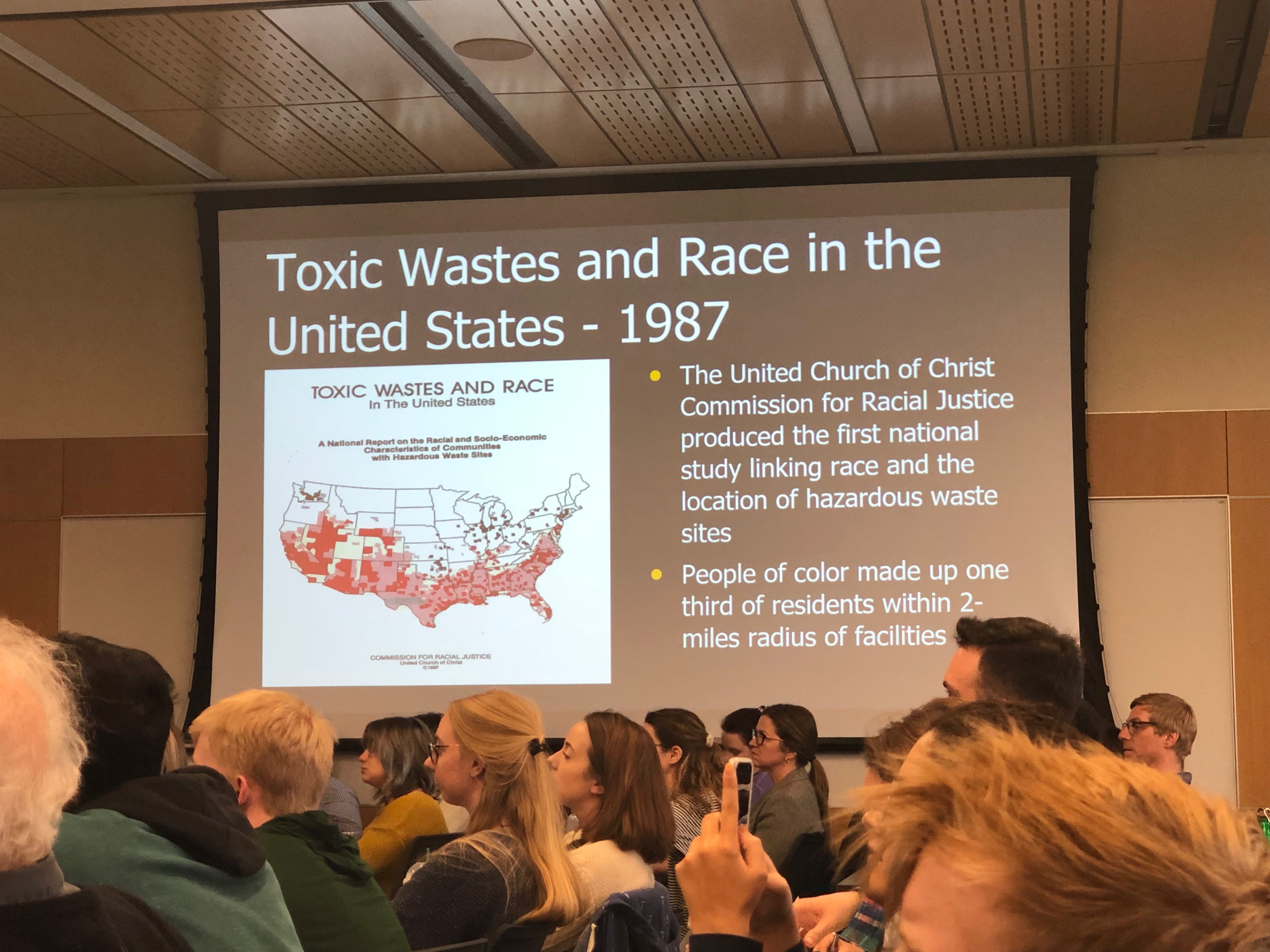
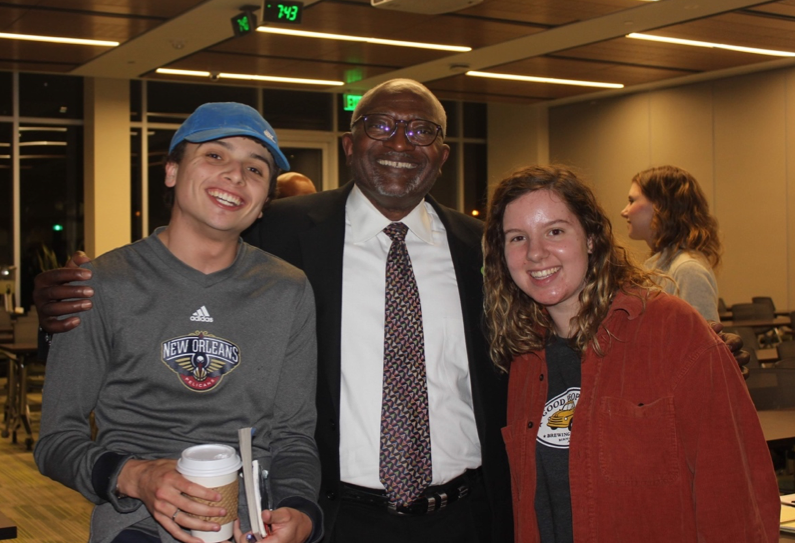 Dr. Bullard saved the last 20 minutes of his presentation time to answer student questions.
Dr. Bullard saved the last 20 minutes of his presentation time to answer student questions. 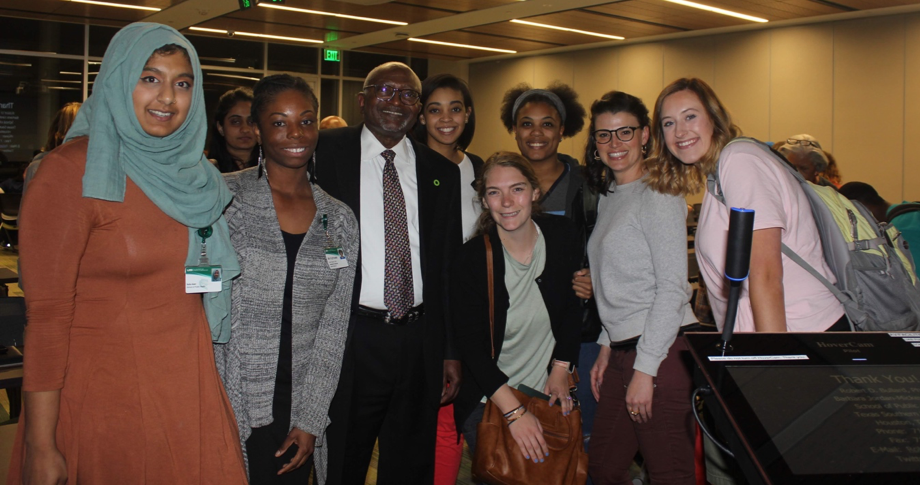 The audience was inspired by Dr. Bullard’s career achievements, which he characterized as a “marathon relay race, with folks like me passing the torch to your generation to continue the struggle for environmental justice.”
The audience was inspired by Dr. Bullard’s career achievements, which he characterized as a “marathon relay race, with folks like me passing the torch to your generation to continue the struggle for environmental justice.”